What kind of Yunnan small-grain coffee tastes good? what are the flavor and taste characteristics of Yunnan Hongmi coffee?

With the rise of domestic products, the partners who came to Qianjie coffee shops also began to pay attention to the coffee beans in Yunnan producing areas. Careful friends should be able to find that no half of the coffee beans in Qianjie coffee producing area in Yunnan are treated with special treatment, but with the most traditional sun treatment and water washing treatment. That's because Qianjie believes that good ingredients often need only the simplest way to deal with them.
Chinese Coffee History
Unlike coffee and tea, tea culture has long been deeply rooted in the hearts of the Chinese people. The earliest history of coffee consumption in China can only be traced back to the late Qing Dynasty, when most of the consumers were foreigners, while the history of coffee cultivation in China is only more than one hundred years.
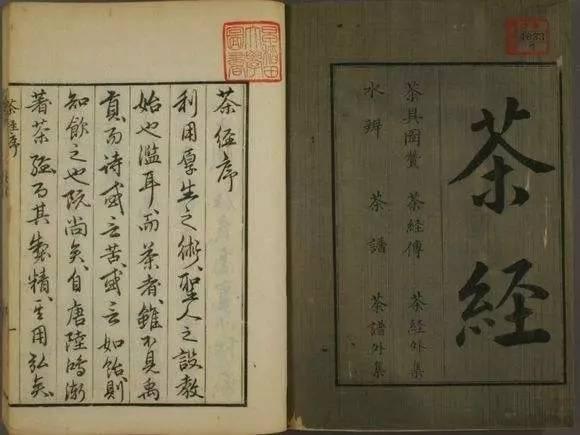
Because the Chinese lost the war between China and France in the late Qing Dynasty, the court was forced to open Yunnan as a trading port, and French strength was able to enter Yunnan. French Father Tian Deneng was assigned to build a Catholic church and preach in Zhukula Village, Pingchuan Town, Binchuan County, Dali. Because Father Tian Deneng had a habit of drinking coffee, an Arabica coffee tree was planted next to the church.

However, there is no way to study the exact planting year, and there are even three theories:
①, an old gentleman born in Yunnan in 1903, recalled that the church staff mentioned that the priest planted coffee trees outside the church for self-production and self-sale.
②, a Yunnan company, trumpeted through many media in 2008 that Father Tian Deneng planted the coffee tree in 1892.
Members of the ③ Hainan Provincial Association of Science and Technology have cited historical documents in academic journals to confirm that the age is 1904. In the end, it is generally believed that this statement is closer to the truth.
Coffee growing areas in China
Coffee cultivation in China is mainly distributed in Fujian, Hainan and Yunnan provinces, but because Fujian and Hainan provinces are close to the sea, the average elevation is no more than 1000 meters, which is only suitable for growing robusta coffee beans. Therefore, the eyes of the public are focused on the coffee producing area of Yunnan, China.

Yunnan Province is located in southwest China, between latitude 15 °N and Tropic of Cancer. Most areas of Yunnan are between 1000 and 2000 meters above sea level. The topography is mainly mountainous and sloping land, and the undulation is large, the soil is fertile, the sunshine is sufficient, the rainfall is abundant, and the temperature difference between day and night is large. These conditions not only meet the requirements of coffee planting, but also create the special flavor and taste of Yunnan coffee.
Where is the producing area of Yunnan coffee beans?
Coffee growing areas in Yunnan are mainly distributed in the west and south of Yunnan Province, that is, Pu'er, Baoshan, Lincang and Hongde.

[Dehong] has the laudatory name of "hometown of Chinese coffee". The coffee planting in Dehong Prefecture is above 1000 meters above sea level, of which 30, 000 mu are planted in the mountains above 1600 meters above sea level. in addition, the coffee grown in Dehong Prefecture mainly uses organic fertilizers and organic pesticides, resulting in high quality coffee. it is one of the rare high-quality coffee producing areas in the world.
[Baoshan] the cultivation of coffee in Baoshan began in the mid-1950s, and the first coffee seedling was introduced by the late patriotic overseas Chinese Mr. Liang Jinshan in Southeast Asia. In recent years, with the expansion of international trade, Lujiangba's small-grain coffee is more famous. Merchants in Europe, the United States, Egypt, Hong Kong and Macao, especially in Britain, the United States, Egypt, Hong Kong and Macao all regard it as top-grade coffee, and their products are in short supply. In December 2010, after being examined and approved by China's General Administration of quality Supervision, Inspection and Quarantine, it was decided to implement national geographical indication product protection for "Baoshan small Coffee".
Because of its unique geographical location and climatic conditions, Lincang has become the focus of many coffee enterprises, and has successively established 200 mu and 100 mu of high-quality coffee breeding bases in Mengding Town and Lincang Happiness Farm in Gengma Autonomous County of the city. coffee is grown in Gengma, Zhenkang, Yun County, Cangyuan, Yongde and other places.
[Pu'er] Pu'er coffee has been cultivated in Tea Township for 150 years. At the end of 1990s, Pu'er City began to cultivate coffee as a dominant backbone industry to adjust the industrial structure and increase farmers' income.
Yunnan coffee bean varieties
With the implementation of the national reform and opening-up policy, a large number of international brands such as Nestle and Starbucks have settled in Yunnan Province and stepped up efforts to promote the cultivation of Katim coffee varieties.
Before planting Katim, the variety of Yunnan small-grain coffee was iron pickup, but coffee growers chose to cut down the more elegant tin-pickup coffee tree in order to get higher yield and stronger disease resistance. instead, Katim varieties with part of the Robusta gene are planted.
[iron pickup] Iron pickup is the oldest native variety in Ethiopia, and all Arabica coffee varieties are derived from iron pickup. The top leaf of the iron pickup is bronzed and the bean grains are oval or thin in shape; the flavor is elegant, but the disease resistance is poor, and the fruit yield is low.

[Katim] Katim is a coffee variety with strong resistance to leaf rust, strong resistance to coffee berry disease and high fruit yield, which was obtained by cross between Timor and Kaddura in Portugal in 1959. Because Katim has the gene of Robota beans, its flavor is rich and thick, but also has a hint of flaw.

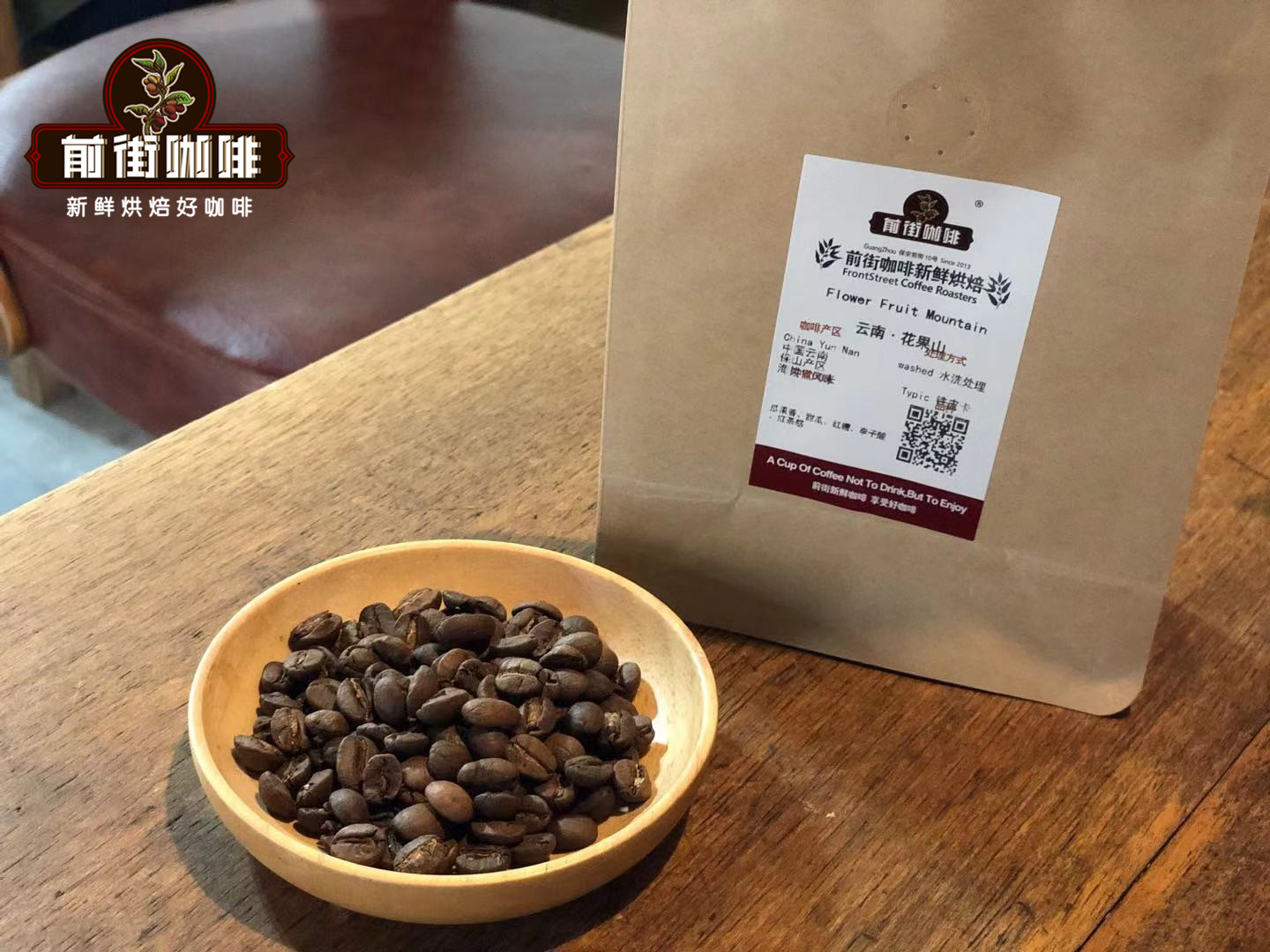
Qianjie Coffee Yunnan Huaguo Mountain
Producing area: Baoshan, Yunnan, China
Altitude: 1200m
Variety: iron pickup
Treatment method: washing treatment

Qianjie Coffee Yunnan small Coffee beans
Producing area: Baoshan, Yunnan, China
Altitude: 1200m
Variety: Katim
Treatment method: washing treatment
Qianjie coffee brewing Yunnan Huaguoshan and Yunnan small grains suggestion
The V60 conical filter cup is recommended in the front street. V60 cup mouth is relatively large, coupled with its unique spiral curve ribs, so that the air can be discharged more easily to improve the extraction quality. The taste may not be thick enough, but its high concentration brings out the acidity and obvious aroma of Yunnan coffee is one of its major features.

Filter cup: V60
Water temperature: 90-92 ℃
Powder / water ratio: 1:15
Degree of grinding: medium and fine grinding, that is, the thickness of fine sugar (EK43s#10.5: 75% pass rate of Chinese standard No. 20 screen)
Flushing and cooking technique: segmented extraction. Steam with 30 grams of water for 30 seconds, small flow circle injection to 124 grams, continue to inject water to 227 grams when the water level is about to be exposed to the powder bed, remove the filter cup when the water level is about to expose the powder bed, and the extraction time is 2 minutes.
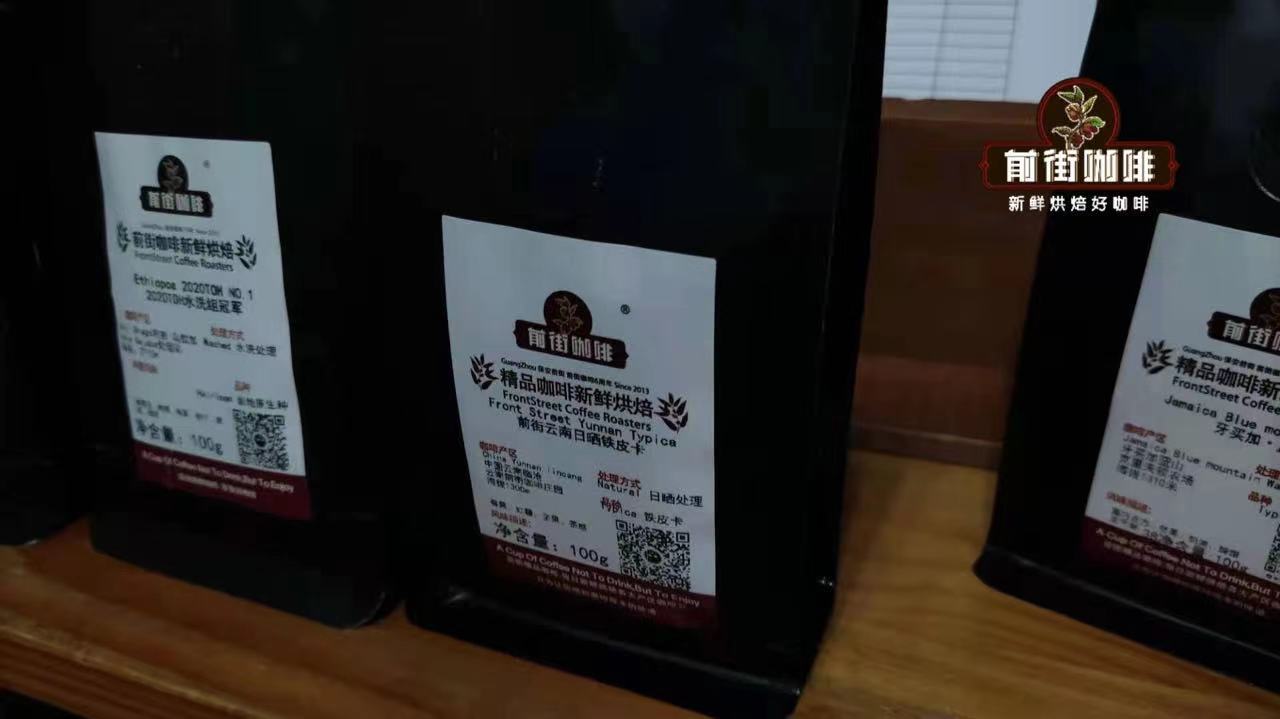
Yunnan tanning iron pickup in Qianjie Coffee Qianjie
Producing area: Lincang, Yunnan, China
Altitude: 1300m
Variety: iron pickup
Treatment method: sun treatment
Suggestion of Yunnan Sun Iron pickup truck in Qianjie Coffee brewing
Filter cup: KONO
Water temperature: 86-88 ℃
Powder / water ratio: 1:15
Degree of grinding: medium and fine grinding, that is, the thickness of fine sugar (EK43s#10.5: 75% pass rate of Chinese standard No. 20 screen)
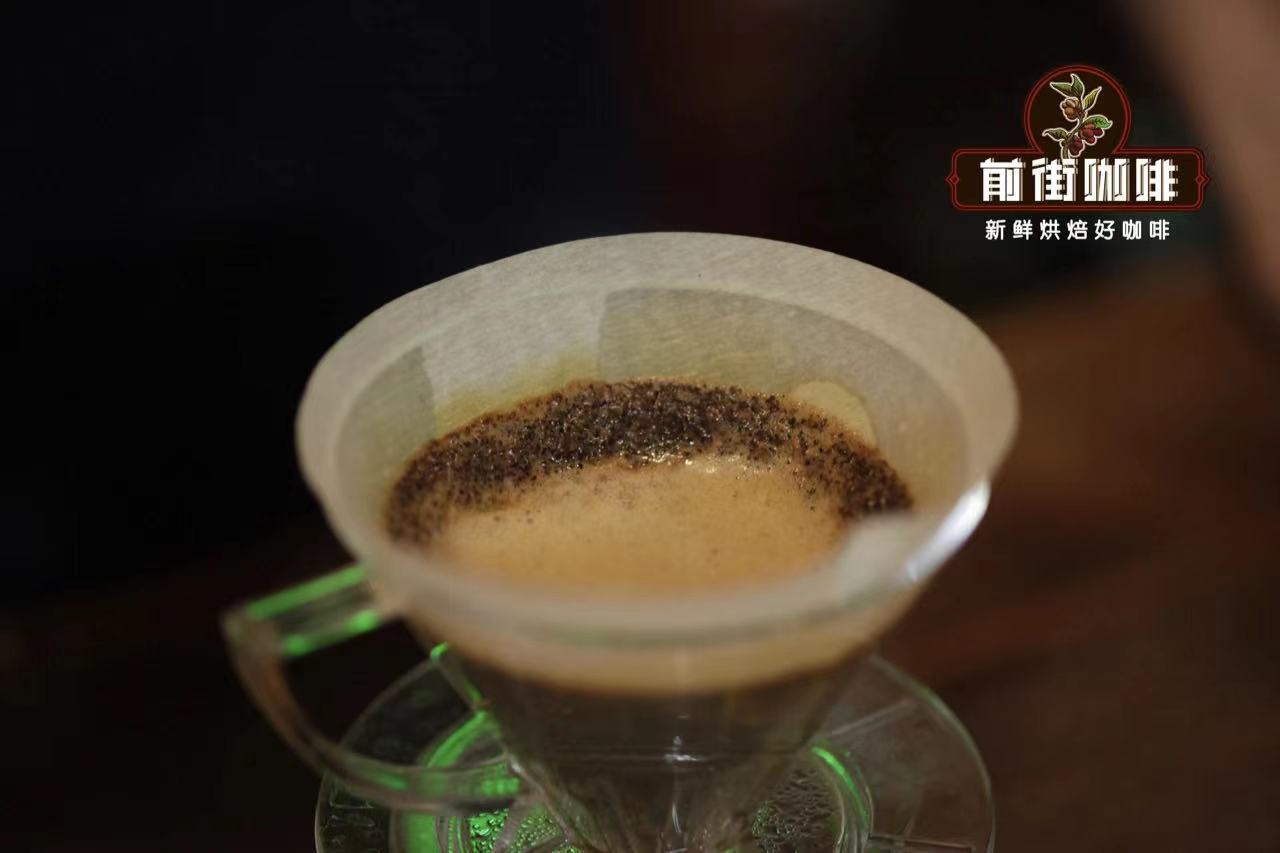
Comparison of flavor characteristics of coffee beans in Yunnan
[Yunnan Huaguo Mountain in Qianjie] strong but not bitter, fragrant but not strong, flower fragrance, sweet melon in the middle, black tea feeling at the end.
[Qianjie Yunnan small grains] nutty aromas of herbs, chocolate and caramel, with a hint of acidity in the finish.
[Qianjie Yunnan Sun Iron truck] with sour raspberry fruit, nut tone, brown sugar sweetness and tea aftertaste.
Professional coffee knowledge exchange more coffee bean information please follow the coffee workshop (Wechat official account cafe_style)
For more boutique coffee beans, please add private Qianjie coffee on Wechat. WeChat account: kaixinguoguo0925
Important Notice :
前街咖啡 FrontStreet Coffee has moved to new addredd:
FrontStreet Coffee Address: 315,Donghua East Road,GuangZhou
Tel:020 38364473
- Prev

Organic coffee | how to make coffee in a cinnamon pottery pot? Flavor characteristics of Mexican Coffee
Professional coffee knowledge exchange more coffee bean information Please follow the coffee workshop (Wechat official account cafe_style) A major coffee grower Mexico, located in Mexico at the northern tip of Central America, is the fourth largest coffee producer in the world, mainly growing coffee beans in Arabica. Due to the influence of geography and weather environment, almost all the well-known Mexican coffee producing areas in the world are here.
- Next
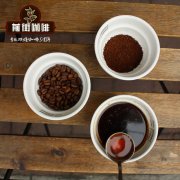
Flavor characteristics of Cold Canadian Manor Coffee in Huatusco Coffee
Professional coffee knowledge exchange more coffee bean information please follow the coffee workshop (Wechat official account cafe_style) Mexico Cold Canadian Manor (Caada Fra) * (Huatusco) Huatusco: 1200-1500m above sea level, slight acidity of plums on the palate, strong caramel sweetness and dark chocolate finish. Cold Canada Manor is located in (Huatusco) China.
Related
- Detailed explanation of Jadeite planting Land in Panamanian Jadeite Manor introduction to the grading system of Jadeite competitive bidding, Red bid, Green bid and Rose Summer
- Story of Coffee planting in Brenka region of Costa Rica Stonehenge Manor anaerobic heavy honey treatment of flavor mouth
- What's on the barrel of Blue Mountain Coffee beans?
- Can American coffee also pull flowers? How to use hot American style to pull out a good-looking pattern?
- Can you make a cold extract with coffee beans? What is the right proportion for cold-extracted coffee formula?
- Indonesian PWN Gold Mandrine Coffee Origin Features Flavor How to Chong? Mandolin coffee is American.
- A brief introduction to the flavor characteristics of Brazilian yellow bourbon coffee beans
- What is the effect of different water quality on the flavor of cold-extracted coffee? What kind of water is best for brewing coffee?
- Why do you think of Rose Summer whenever you mention Panamanian coffee?
- Introduction to the characteristics of authentic blue mountain coffee bean producing areas? What is the CIB Coffee Authority in Jamaica?

